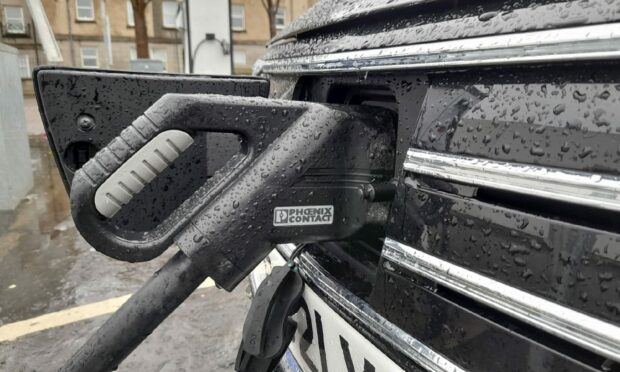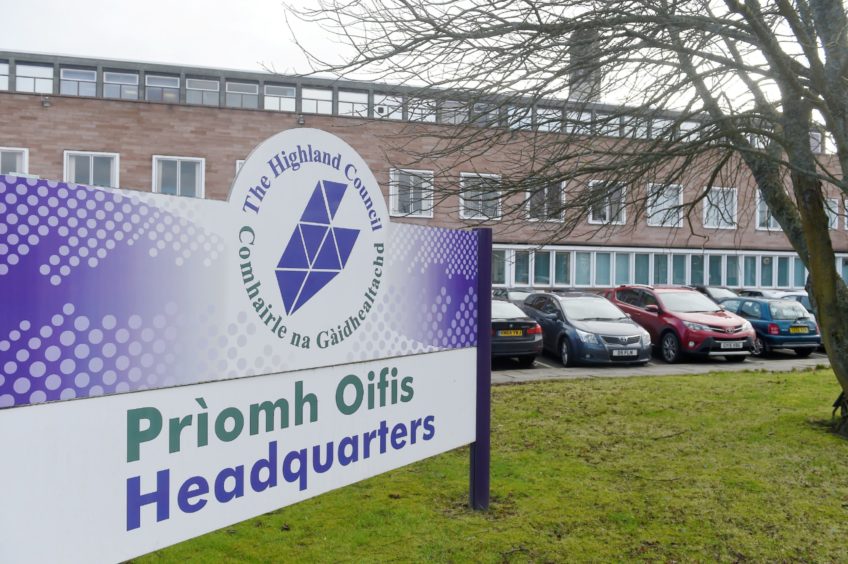The cost of charging an electric vehicle at a Highland Council rapid charging point could soon increase to 70p per kilowatt hour.
The council currently charges 30p/kwh at its fastest charge points and 20p/kwh for slower chargers.
However, Highland Council says this rate is not sustainable. Instead, it’s asking councillors to agree to double the price.
If approved, the tariff will increase to 70p/kwh and 35p/kwh. This means the cost of fully charging an electric car would rise from £12 to £28.56.
It’s lower than the 84p originally proposed in November.
This allows the council to cover its costs and retain £120,000 a year to make repairs.
But it’s a controversial plan, with critics warning it could deter cash-strapped motorists from making the switch to electric.
Why put prices up?
Currently, Highland Council operates 85 electric vehicle (EV) charging points. Of these, 49 are rapid charging points, which the council calls ‘journey’. Slower EV chargers are referred to as ‘destination’ and the council has 36 of these.
By autumn 2023, the council expects to have another 23 EV chargers in operation.
However, until recently, Transport Scotland covered the cost of repairs and maintenance. With this agreement coming to an end, the council says it must put prices up to cover the shortfall.
Currently, the council is turning a modest £15,650 profit on its EV chargers. But when it adds in repairs and maintenance, plus any new installations, it’s looking at a £363,250 annual shortfall.
This is partly caused by escalating electricity prices. The council’s annual EV electricity bill has increased by 160% since 2020.
Highland Council’s proposed price increases will go before the economy and infrastructure committee next Thursday 2 February.
Climate change committee could not agree
The EV price hike was first brought to councillors in November, at the Highland Council’s new climate change committee. Back then, the proposed tariff was even higher, at 84p.
The proposals sparked a row, with most members taking the view that 84p was too steep. If agreed, it would have made Highland one of the most expensive regions in Scotland for electric vehicles. That tariff would have been even higher than charges at commercial operators like BP.
Opposition councillors said the proposals would deter motorists from switching to electric vehicles.
The committee decided to defer a decision, and sent council officers back to negotiate with Transport Scotland.
Since then, the council has managed to secure some extra money from Transport Scotland, which has allowed them to come back to councillors with a slightly more palatable 70p proposal.
The report for economy committee also sets out a plan to work with councils in Aberdeen City and Aberdeenshire to secure extra EV points and private investment.
Are you interested in more exclusive and breaking Highland and Islands news from the P&J? If so, why not join our dedicated new Facebook page HERE


Conversation